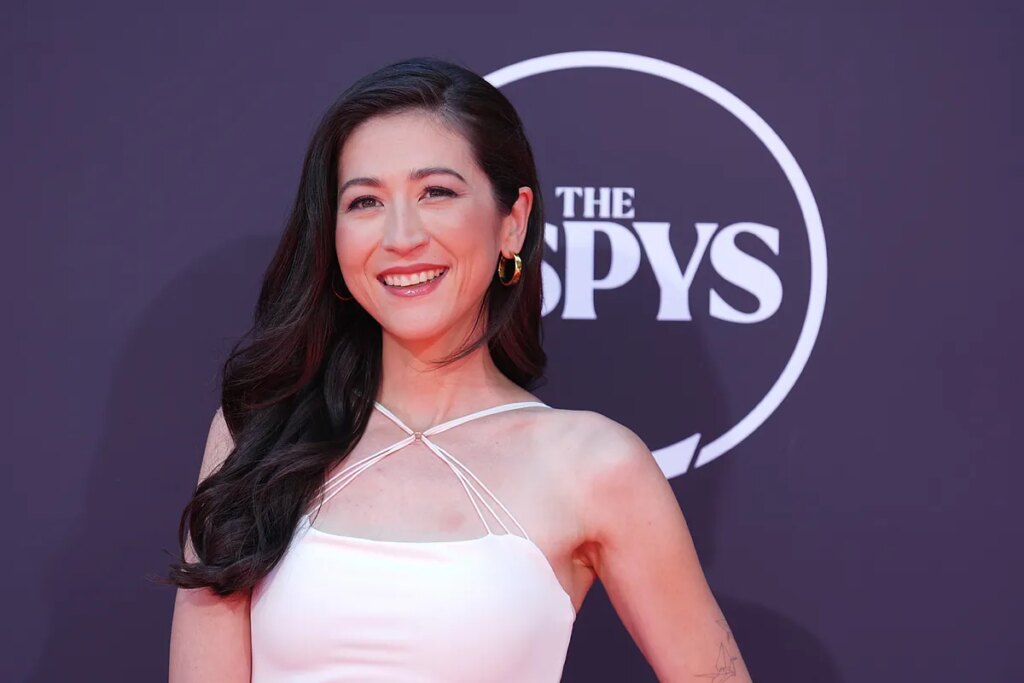The former ESPN host Jemele Hill publicly shamed a fan who directed a racial slur at NFL analyst Mina Kimes, as she recalled an uncomfortable encounter at an airport lounge.
Highlighting the offensive language used against Kimes and the broader issue of casual racism, Hill recounted the event on X.com, the website formerly known as Twitter until Elon Musk‘s acquisition in 2022.
“Awkward moment at the airport lounge,” Kimes wrote. “A man approached me saying he recognized me from ESPN (happens often), and complimented my work.
“Then he said I like you and that Oriental gal @minakimes… exact verbiage.”
Kimes responded to Hill‘s tweet with a GIF, signaling her recognition of the inappropriate comment. Hill, meanwhile, expressed her visible disgust, tweeting, “That was the look on my face … but more disgust.”
The fan, according to Hill, appeared to be in his 40s or 50s and the term, “Oriental,” is widely considered offensive and outdated when describing people, as it homogenizes diverse Asian cultures and carries colonial connotations.
Mina Kimes’ proud Asian heritage
Kimes is of mixed heritage, and is Korean on her mother’s side and white on her father’s side so the comment highlighted ongoing issues with racial insensitivity, even in casual public encounters.
Mina has previously spotlighted positive representation of Asian culture. In Week 1 of the NFL season, Washington Commanders quarterback Jayden Daniels wore the Japanese flag on his helmet, honoring his great-grandmother.
Kimes, known for her sharp insight and ability to contextualize social issues within the sports world, tweeted about the gesture, celebrating its impact on Asian communities.
“This just came to my attention and the Asian group chats are going crazy. This is an incredible pickup for us,” Kimes posted on September 8, emphasizing the significance of visible cultural representation in sports.
Hill’s decision to publicly call out the fan reinforces the importance of speaking against racist remarks in everyday life, and offered key support to one of her industry colleagues.
By highlighting the incident, she emphasized accountability for offensive language, even when directed in casual or seemingly complimentary settings.
This incident also illustrates the challenges that women and people of color continue to face in sports media. Kimes‘ expertise and professionalism should be celebrated, not overshadowed by derogatory comments from uninformed individuals.
Hill’s tweets were widely shared and applauded by fans, drawing attention to the ongoing conversation about respectful language and cultural sensitivity as her reaction underscores the need to challenge offensive behavior immediately.
Ultimately, the episode serves as a reminder of the power of public figures like Hill and Kimes to educate audiences.
Their responses show how confronting bigotry, even in small interactions, contributes to broader awareness and cultural respect in sports and media.
Read the full article here

